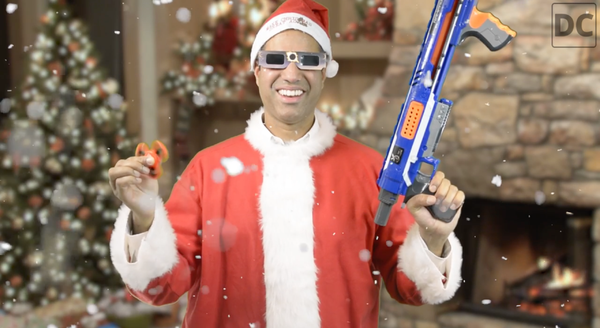

By Liam Benedict
The drama surrounding this year’s presidential election is slowly but surely dwindling into nothingness. Although President Trump has done it in an incredibly petty, reluctant manner, his administration has technically given the go-ahead for the Biden Administration’s transition into power.
Of course, this has only come about after Trump’s numerous failed fraud lawsuits. But I digress.
The Controversial FCC Chairman Ajit Pai has announced that he will be stepping down on Jan. 20, 2021, the day of president-elect Joe Biden’s inauguration. Technically speaking, he could have kept the position until July of next year but has chosen not to do so.
Most importantly, the legacy that Ajit Pai has left behind is notable for two reasons: his disconcerting, infuriating sense of humor, and his successful takedown of the concept we call “Net Neutrality.” But with this resignation, there is new hope for saving net neutrality. However, like each struggle to fight back against Trump Administration policy –– it will not be easy.
Simply put, Net Neutrality was a series of regulations put in place by the Obama Administration in 2015, who endorsed them under Title II of the Communications Act of 1934. This resulted in internet service providers becoming utilities.
As Cnet explains it, Net Neutrality was “the principle that all traffic on the internet must be treated equally. It requires internet service providers to prohibit slowing or blocking access to websites, and it prohibits companies that control internet access from favoring their own services and content over a competitor’s content or services.”
Another important aspect of this legislation was the clause that prohibited broadband companies from selling “fast lanes” to internet companies. As former Chairman Wheeler put it, “These rules say no blocking, no throttling, no paid prioritization.”
Unfortunately, those protections are gone now.
Even though the changes affect everyone, it was specifically members of the younger generations, who have grown up using the internet, that took offense. Ajit Pai knew how unpopular the policy was, and much like how President Trump handles criticism, he mocked it in an ugly way.
He took to the internet and released a painfully unfunny video, insulting both net neutrality and its supporters (pictured above). This bizarre attempt at humor did not win him any fans, as evidenced by the bomb threats sent to his agency, the threats sent to his family and the 20 million public comments he received.
Pai also played a crucial role in the merging of T-Mobile and Sprint, claiming that it was necessary to further develop 5G technology. The importance of this has yet to be seen, but what is clear, however, is that he has taken us one step closer to a possible monopoly on wireless, which benefits no one but the corporations involved.
Deep down, Pai’s actions are ultimately selfish in motive, with little good coming from them. This could be seen in part with his claim that net neutrality hurt private investment in broadband technology. However, Cnet reports, “statements from broadband company CEOs show no clear evidence that the repeal had any effect on investment in the broadband sector.”
Still, at least now there seems to be a small light of hope at the end of the tunnel. With Joe Biden’s presidential win, there is the chance for a democratic majority in the FCC, speculating that Biden will want Jessica Rosenworcel for the new head, the senior democrat currently serving on the commission.
However, the Republicans are still up to their old tricks. The Senate is trying to rush through another hasty, ill-advised Trump nominee for the FCC. If it passes, it could leave the commission without a majority, leading to more deadlock.
Ultimately, I want to reinforce the importance of restoring Net Neutrality, especially during COVID-19.
To conclude, a quote from Evan Greer, deputy director of activist group Fight for the Future, explains the importance of Pai’s resignation:
“We are in the middle of a crushing pandemic. Hundreds of millions of people are working from home and sending their kids to school online. Comcast just announced plans to re-impose arbitrary data caps. Kids are sitting outside Taco Bell to do their homework. We desperately need a functional FCC that will quickly repair the damage done by Ajit Pai and get to work protecting the public from ISP abuses.”